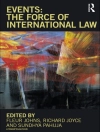The seventeen essays in Women and Power in the Middle East analyze the social, political, economic, and cultural forces that shape gender systems in the Middle East and North Africa. Published at different times in Middle East Report, the journal of the Middle East Research and Information Project, the essays document empirically the similarities and differences in the gendering of relations of power in twelve countries—Morocco, Algeria, Tunisia, Egypt, Sudan, Palestine, Lebanon, Turkey, Kuwait, Saudi Arabia, Yemen, and Iran. Together they seek to build a framework for understanding broad patterns of gender in the Arab-Islamic world.
Challenging questions are addressed throughout. What roles have women played in politics in this region? When and why are women politically mobilized, and which women? Does the nature and impact of their mobilization differ if it is initiated by the state, nationalist movements, revolutionary parties, or spontaneous revolt? And what happens to women when those agents of mobilization win or lose? In investigating these and other issues, the essays take a look at the impact of rapid social change in the Arab-Islamic world. They also analyze Arab disillusionment with the radical nationalisms of the 1950s and 1960s and with leftist ideologies, as well as the rise of political Islamist movements. Indeed the essays present rich new approaches to assessing what political participation has meant for women in this region and how emerging national states there have dealt with organized efforts by women to influence the institutions that govern their lives.
Designed for courses in Middle East, women’s, and cultural studies, Women and Power in the Middle East offers to both students and scholars an excellent introduction to the study of gender in the Arab-Islamic world.
Tabela de Conteúdo
INTRODUCTION
—Suad Joseph and Susan Slyomovics
OVERVIEWS
Women’s Activism in the Middle East: A Historical Perspective
—Sarah Graham-Brown
Women and Politics in the Middle East
—Suad Joseph
Women and Work in the Arab World
—Nadia Hijab
The Politics of Gender and the Conundrums of Citizenship
—Deniz Kandiyoti
COUNTRY CASE STUDIES: WEST TO EAST
State and Gender in the Maghrib
—M. M. Charrad
Sex, Lies, and Television: Algerian and Moroccan Caricatures of the Gulf War
—Susan Slyomovics
An Interview with Heb Ra’Uf Ezzat
—Karem El-Gawhary
Women on Women: Television Feminism and Village Lives
—Lila Abu-Lughod
Sudanese Women and the Islamist State
—Ellen Gruenbaum
For the Common Good? Gender and Social Citizenship in Palestine
—Rita Giacaman, Islah Jad, and Penny Johnson
Women and the Palestinian Movement: No Going Back?
—Julie Peteet
Searching for Strategies: The Palestine Women’s Movement in the New Era
—Rita Giacaman and Penny Johnson
Gender and Citizenship: Considerations on the Turkish Experience
—Yesim Arat
Women in Saudi Arabia: Between Breadwinner and Domestic Icon?
—Eleanor Doumato
Women’s Organizations in Kuwait
—Haya Al-Mughni
The Dialectics of Gender and Politicism: Yemen
—Sheila Carapico
The Political Economy of Female Employment in Postrevolutionary Iran
—Fatemeh Etemad Moghadam
Sobre o autor
Suad Joseph is Professor of Anthropology and Women’s Studies at the University of California, Davis. She is the author of Intimate Selving in Arab Families: Gender, Self and Identity and Gender and Citizenship in the Middle East, general editor of the Encyclopedia of Women and Islamic Cultures and editor of Gender and Citizenship in the Middle East. Susan Slyomovics is Genevieve Mc Millan-Reba Stewart Professor of the Study of Women in the Developing World and Professor of Anthropology at the Massachusetts Institute of Technology. She is the author of The Object of Memory: Arab and Jew Narrate the Palestinian Village (also available from the University of Pennsylvania Press), winner of the 1999 Albert Hourani Book Award given by the Middle East Studies Association, and the 1999 Chicago Folklore Prize.












